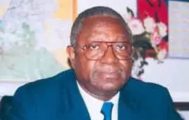3, December 2017
Ambazonia: Freedom fighters betrayed by Southern Cameroonians 0
After months of meticulous investigations by Cameroon Concord News, we can confirm indisputably that La Republique du Cameroon infiltrators living in the diaspora are alerting embassies and authorities in La Republique about the activities of Ambazonians in Europe and North America. In a jaw dropping revelation, we can say without any fear of contradiction that contemptible repulsive moles are working amongst Ambazonians in the Diaspora.
Since the beginning of the year, prominent Ambazonians have been repatriated from Cameroun or abducted upon arrival at the Yaoundé and Douala international airports. In March this year, the recently appointed Ambazonian Secretary of State for Finance and Economy, Mr Brado Tabenyang was not allowed entry into the country whilst on a personal and business trip. That story, amongst many others were covered by our media group at the time. After many such non-coincidences, this media outlet launched an investigation to uncover the truth.
Our revelation was telling because it confirmed the worst fear of most Ambazonians. It uncovered that these blacklegs were born in British Southern Cameroon. It was previously alleged that they all originated from French Cameroun. This development is disquieting as Ambazonians in the diaspora talk about their political beliefs and quest for freedom without apprehension and the thought of in-community secret agents poses a problem to their fight for freedom.
We can confirm that one of these deplorable creatures lives in the South West of England, Great Britain. Our investigation uncovered that plagued with low self-esteemed and a lack of personal accomplishment, he has resorted to this dark art to gain favours from the crooked government in Yaoundé. During our investigation, we established that he is craving for an appointment back in Cameroun by the CPDM regime. The worrying part of this exposé is that he is an involved community member. During the cold war, the deadliest spies lived as close members of the populations they were infiltrating. Our investigation has uncovered that the strategy of these moles is to be very involved in the diaspora community and pretend to be part of the struggle whilst their intent is to spy. We are closely following the tracks of others who live in other European countries.
Our fact-finding operation exposed that these moles are driven by jealousy because the corrupt regime in La Republique and their embassies have not set aside any funds to pay them for their wretched services. Driven by envy, they call and in some cases visit embassies to cook up stories that their victims are prominent secessionists. Once this information is in the hands of La Republique authorities, the lives of these Ambazonians and that of their families back home are in danger. They are more than a few stories of Ambazonians that have vanished upon arrival in Cameroun due to the works of these dark agents.
Venomous actions of this nature show the lengths at which some of our people are going to betray the struggle. We are currently in the process of clearing some legal barriers and when that’s achieved, the names of these characters will be communicated in the near future so Ambazonians could stay well clear of these scorpions.
By Chi Prudence Asong, CCN




























3, December 2017
Trump pulls US out of UN migrant and refugee compact 0
US President Donald Trump has pulled the country out of a UN compact aimed at improving migrant and refugee situations around the world.
The US mission to the global body announced the decision on Saturday, saying the Trump administration deemed the pact “inconsistent” with its policies.
“Today, the US Mission to the United Nations informed the UN Secretary-General that the United States is ending its participation in the Global Compact on Migration,” it said in a statement.
Known as the New York Declaration for Refugees and Migrants, the compact is a non-binding political declaration that was unanimously adopted by the 193 members of the UN General Assembly in September 2016.
Under the compact, the members pledged to uphold the rights of refugees, help them resettle and insure they have access to education and jobs.
“The New York Declaration contains numerous provisions that are inconsistent with US immigration and refugee policies and the Trump Administration’s immigration principles. As a result, President Trump determined that the United States would end its participation in the Compact process that aims to reach international consensus at the UN in 2018,” read the statement.
US Ambassador to the UN Nikki Haley said Washington would continue its support of migrants and refugees around the globe, but noted that “our decisions on immigration policies must always be made by Americans and Americans alone.”
She said the US itself “will decide how best to control our borders and who will be allowed to enter our country,” calling the declaration incompatible with “US sovereignty.”
So far the US, under Trump and his “America First” policies, has withdrawn from several other global commitments made under the administration of former President Barack Obama, including the Paris climate accord.
More recently, Trump has pulled America out of the Paris-based culture and education body, UNESCO, accusing it of “anti-Israel bias.”
Source: Presstv